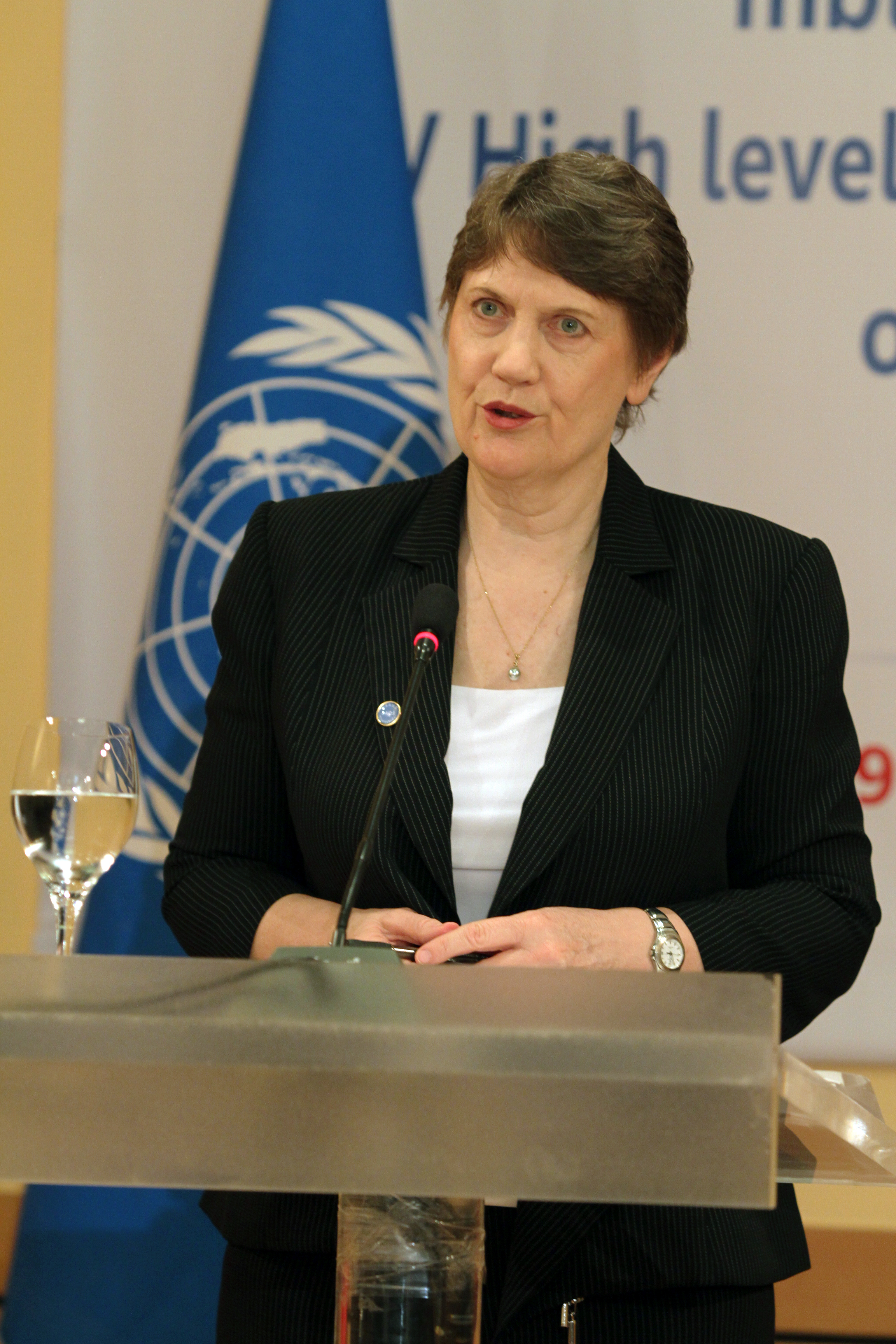Clark, Helen Elizabeth (1950-…), was prime minister of New Zealand from 1999 to 2008. She led New Zealand’s Labour Party, a center-left political party that favors socially liberal policies. During Clark’s prime ministership, New Zealand experienced economic growth, low unemployment, and increased investment in education and health care. She won three terms in office. Following her time as prime minister, Clark became a leader of United Nations (UN) efforts to reduce poverty and to build the economies of less developed nations. 
Clark succeeded Jenny Shipley as prime minister of New Zealand. Shipley, of the National Party, was New Zealand’s first female prime minister. Clark, however, was the first woman to gain the office by leading her party to victory in a general election. Shipley had taken the office in December 1997 after replacing Prime Minister Jim Bolger as leader of the National Party.
Early life and family
Clark was born on Feb. 26, 1950, in Hamilton, on New Zealand’s North Island. She was the oldest of four daughters born to George Clark, a farmer, and his wife, Margaret, a schoolteacher. Helen Clark attended Epsom Girls Grammar School, a highly rated high school for girls in the North Island city of Auckland. She then studied at Auckland University, where she received a master’s degree in political science in 1974. She was a lecturer in political science at the university from 1973 to 1975 and from 1977 to 1981. Clark married Peter Davis (1947-…), a medical sociologist and professor, on Nov. 6, 1981.
Political career
Clark joined the Labour Party in 1971. She lost her first bid for a seat in New Zealand’s Parliament in 1975. But in 1981, she ran for and won the seat representing Mount Albert, a section of Auckland. From 1984 to 1987, Clark served as chair of Parliament’s foreign affairs select committee. (A select committee is a small group from a larger legislative body appointed to consider and report on a particular topic.) From 1984 to 1990, she held a number of positions under the Labour Party Prime Ministers David Lange, Geoffrey Palmer, and Mike Moore. From 1987 to 1989, she served as minister of conservation and of housing. In 1989 and 1990, she was minister of health and of labor, and became New Zealand’s first female deputy prime minister.
In August 1989, Clark became deputy leader of the Labour Party. She held the position until December 1993, when she replaced Moore as party leader.
After the general elections of November 1999, the Labour and Alliance parties formed a minority coalition (partnership) government, which was supported by the Greens. Clark, as the Labour Party’s leader, became prime minister on December 10. She and the Labour Party remained in power after elections in 2002, forming a government with the Progressive Coalition Party, a successor party to the Alliance. In September 2005 elections, Labour won more seats than any other party and again formed a coalition with the Progressives, supported by three other minor parties. Clark then began her third term as prime minister.
New Zealand’s economy grew during Clark’s time in office. The country’s unemployment rate dropped. Clark backed programs to limit global warming (the increase in the average temperature at Earth’s surface). Clark and her government also worked to advance the interests and resolve historical problems of New Zealand’s Indigenous (native) Māori population.
In foreign policy, Clark became known for her work for international peace and disarmament. Her government sent troops to Afghanistan in 2001, but she opposed the United States-led invasion of Iraq in 2003. However, she sent forces to both Afghanistan and Iraq to help rebuild areas damaged by war. Clark was a member of the Council of Women World Leaders, an international network of current and former women presidents and prime ministers.
Clark’s time as prime minister ended in November 2008, after the National Party took power in parliamentary elections. Clark then stepped down as Labour Party leader. National Party leader John Key replaced Clark as prime minister on November 19.
United Nations
In April 2009, Clark resigned from Parliament to become administrator of the United Nations Development Programme (UNDP). The UNDP helps nations make effective use of their natural resources, reduce poverty, and achieve effective democratic government. Clark also became chair of the UN Development Group, a committee that coordinates the efforts of various programs on development issues.
On Dec. 31, 2009, Clark was awarded New Zealand’s highest honor, the Order of New Zealand. The order recognizes “outstanding service to the Crown and the people of New Zealand in a civil or military capacity.”
